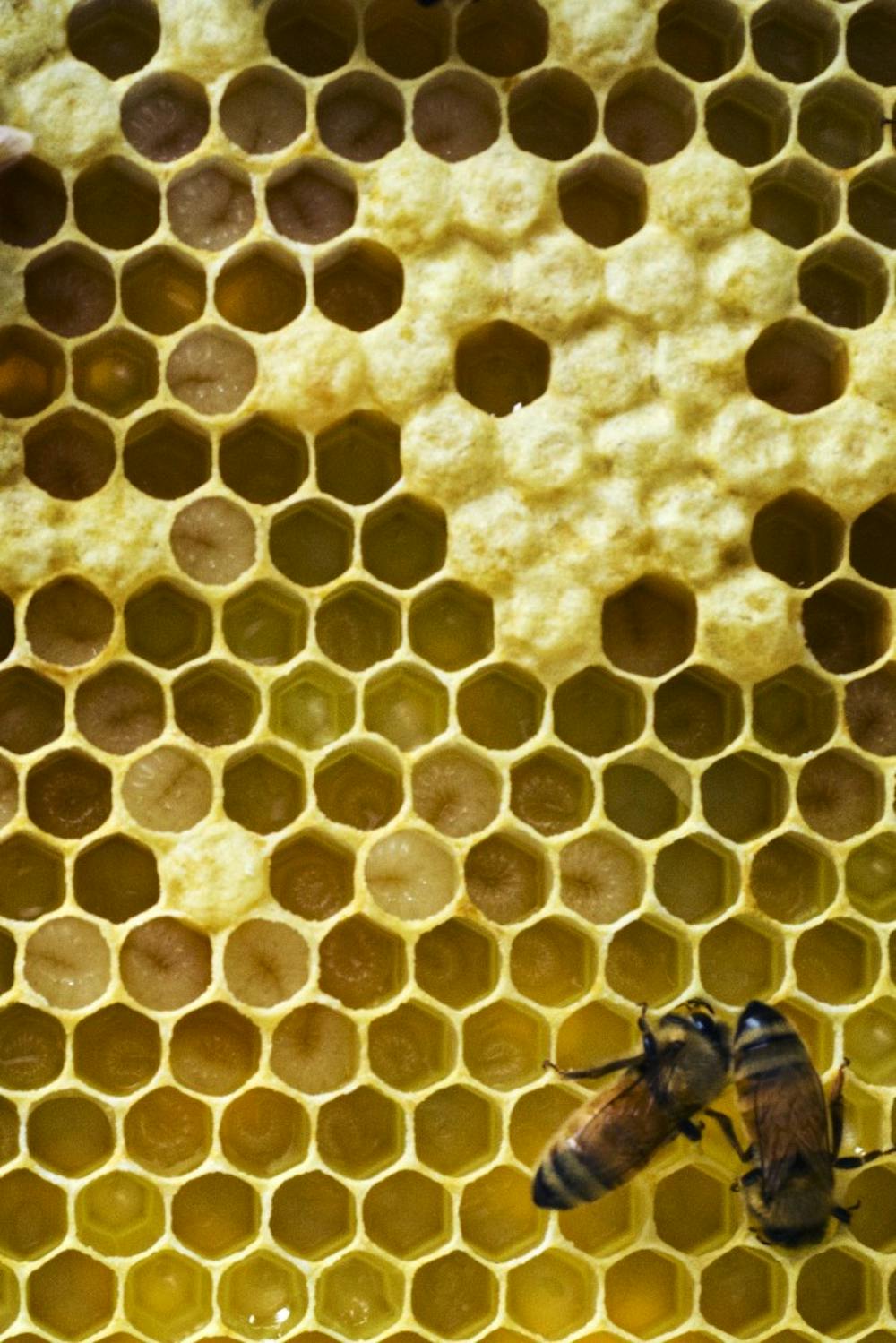All the buzz: Student workers get unique experience by keeping bees

If you take a stroll past Brooks Hall on a warm summer day at Central Michigan University, you might hear the faint sound of buzzing created by some of the hardest workers the campus ecosystem has to offer.
No, it's not students pouring over summer assignments – it is the sound of the hundreds of honey bees that are kept and used for research by CMU's Biology Department.
Patti Travioli is a biology department staffer who started the beekeeping project, which brought the bees to CMU's campus in May. The tiny creatures are kept in a courtyard connecting Brooks Hall and the main CMU greenhouse, which is staffed by several students.
One of those students is Josh Simms, a junior and sociology major who was hesitant when he was told keeping bees would be a part of his job with the department.
"I figured I was going to get stung at least once or twice," Simms said. "Surprisingly, they are really tame. Bees get a bad reputation, and Patti has been great about teaching us how to deal with them effectively and safely."
Chelsea Ellis will be a senior in the Biology Department this fall and said working with other living things is her idea of a good time.
"We have enough flowers and everything else here (in the greenhouse) that they really have no reason to leave," Ellis said. "Besides, they are not very aggressive at all. This has been my favorite part of working at the greenhouse. I find this kind of stuff really interesting."
Biology Department Chair Stephen Roberts said these honey bees are among the most complex and intriguing creatures the department researches.
"It really provides an unparalleled experience for our students," he said. "From a teaching standpoint, they are really wonderful creatures. Any bee that you might see flying around here on campus, there is a slight chance that it is from one of the colonies that we are keeping."
Still, Roberts assures there is no threat to any students who are allergic to the tiny honey-makers.
"They are pretty harmless," he said. "They are in a restricted access area. There is so much commercial bee keeping in the area. On my drive home on Broomfield (Road), I pass a beekeeper who is dealing with 30 or 40 times as many as we have in that courtyard. There is nothing to worry about."
[gallery type="slideshow" ids="188152,188153,188154,188155,188156,188157,188158,188159,188151"]



